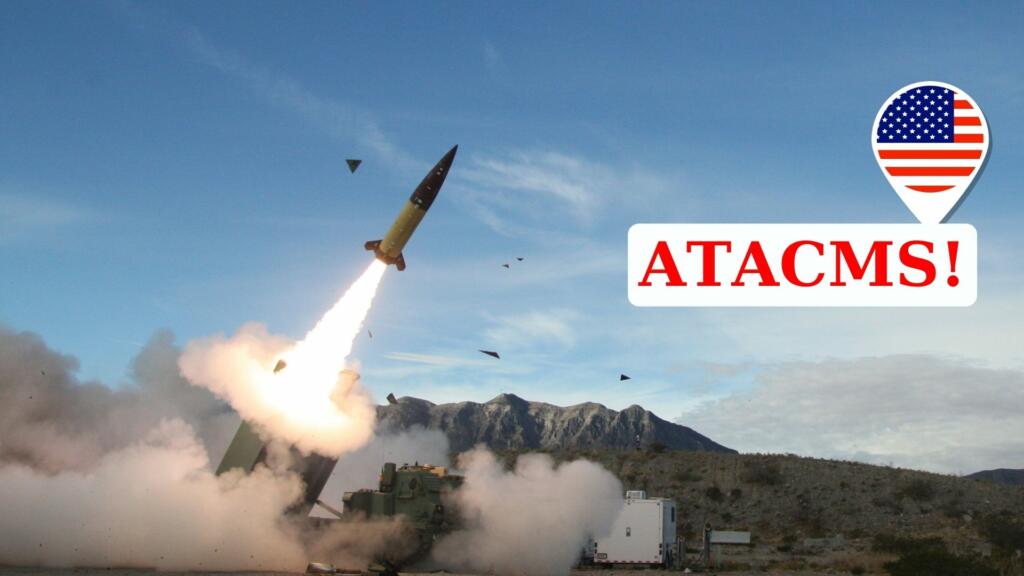In the realm of international relations, the United States has long been regarded as a champion of democracy, freedom, and human rights. However, recent events have raised questions about the ethical and strategic decisions of the US government, particularly regarding its involvement in conflicts and the clandestine nature of its actions. The covert transfer of long-range Army Tactical Missile System (ATACMS) to Ukraine is a case in point, igniting debates about the principles of transparency, accountability, and the moral compass guiding American foreign policy.
The transfer of advanced weaponry to Ukraine, including the highly potent ATACMS, has been confirmed by US officials. Ostensibly aimed at bolstering Ukraine’s defense capabilities against Russian aggression, this move has been met with both admiration and criticism. While some view it as a strategic imperative to support a sovereign nation under threat, others condemn it as a reckless escalation of tensions in an already volatile region.
The ATACMS, renowned for its long-range precision and cluster munition capabilities, represents a significant advancement in military technology. Its deployment raises serious questions about the intentions and motivations behind such actions.
Critics argue that the secrecy surrounding the transfer of ATACMS reflects a departure from traditional norms of transparency and accountability in US foreign policy. The covert nature of the operation not only undermines the principles of open diplomacy but also erodes trust among allies and adversaries alike.
Furthermore, the decision to restrict the use of ATACMS to Ukrainian territory, while ostensibly aimed at de-escalating tensions with Russia, has been met with skepticism. Critics question the effectiveness of such limitations in preventing further conflict, arguing that they may inadvertently provoke retaliation or exacerbate existing hostilities.
The timing of the ATACMS transfer, amidst escalating tensions between Ukraine and Russia, further complicates the situation. With both sides engaged in a precarious standoff, any misstep or miscalculation could have catastrophic consequences for the region and beyond. As such, the need for responsible and principled leadership in navigating these turbulent waters cannot be overstated.
At the heart of the controversy lies a fundamental question: when did the US start backstabbing like a coward? For many observers, the answer lies in recent shifts in US foreign policy, characterized by a willingness to pursue strategic objectives at any cost, even if it means sacrificing long-standing principles of transparency and accountability.
The covert transfer of ATACMS to Ukraine is just the latest example of this trend, raising concerns about the erosion of America’s moral authority on the world stage.
Moreover, the selective disclosure of information surrounding the ATACMS transfer raises doubts about the true extent of American involvement in global conflicts. Analysts argue that the US government’s penchant for secrecy not only undermines the credibility of its actions but also undermines its ability to effectively address complex geopolitical challenges. In an era defined by rapid technological advancements and global interconnectedness, the need for open and honest dialogue has never been greater.
The repercussions of the ATACMS transfer extend far beyond the borders of Ukraine and Russia. They have broader implications for global stability and the future of international relations. By engaging in covert operations and clandestine maneuvers, the US risks alienating its allies, emboldening its adversaries, and undermining the very values it claims to uphold.
In conclusion, the recent actions surrounding the transfer of ATACMS to Ukraine raise profound questions about the ethical and strategic considerations guiding US foreign policy. While the desire to support allies and deter aggression is understandable, the means by which these objectives are pursued must adhere to the principles of transparency, accountability, and respect for international law. Anything less risks undermining the very values that America purports to uphold on the world stage. As such, it is imperative that the US government reevaluates its approach to foreign policy and reasserts its commitment to the principles of democracy, freedom, and human rights that have long defined its identity on the world stage.
Also Read: From Moscow to Mumbai: Russia’s Ambitious Trade Corridors in 10 Days Now
